2019 Paris MoU Annual report "Port State Progression; detention rate down"
The Paris MoU has published its 2019 Annual Report, which can be found below, on the 6th of August 2020. This report provides an overview of the activities of the Paris MoU in 2019 including the statistics. Some of the highlights of the report are set out in this Press Release.
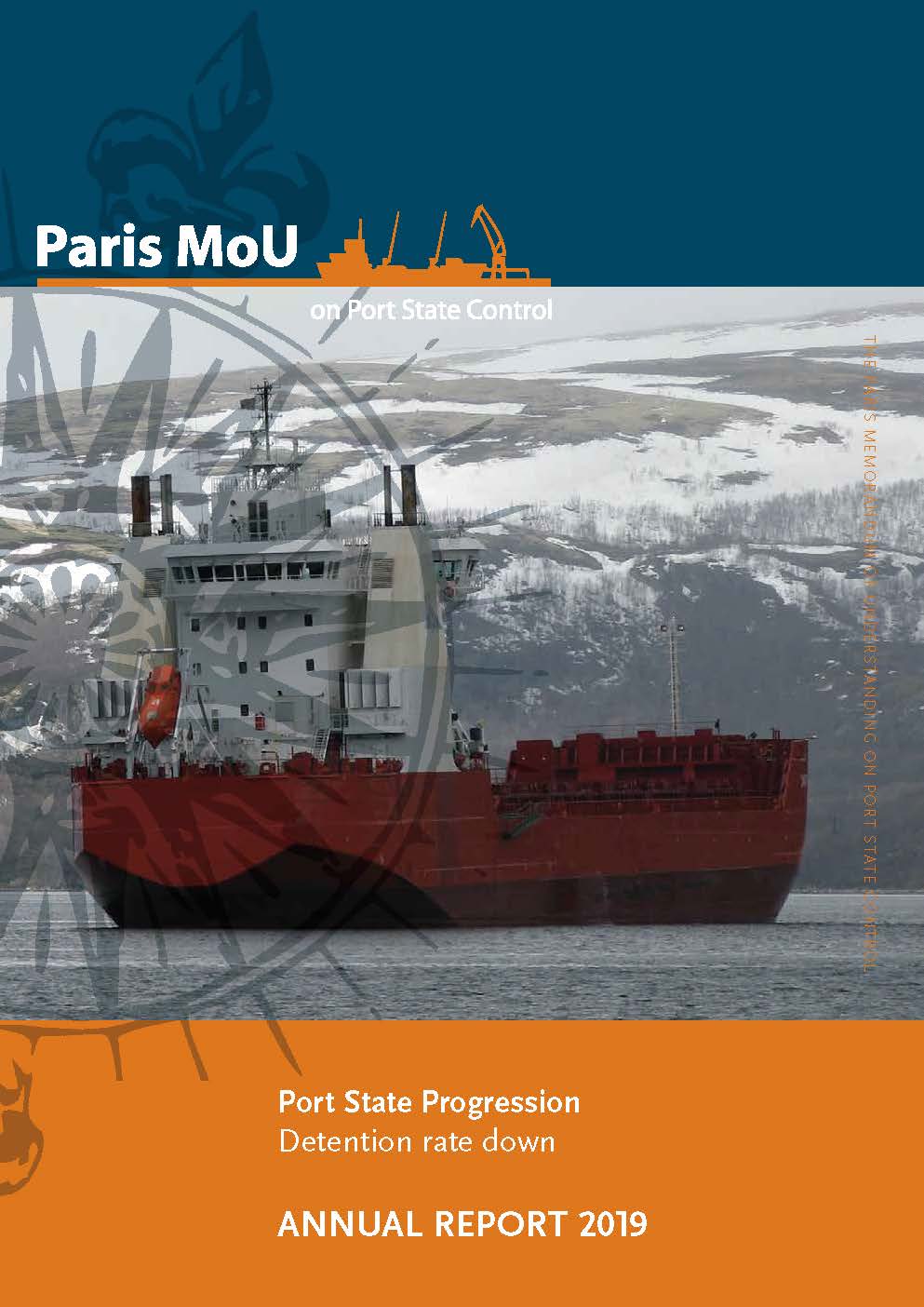
In the past three years 76 ships have been banned for multiple detentions, six ships were banned for “failing to call at an indicated repair yard” and one ship for jumping detention. In the same period, 13 ships were banned for a second time. In the period 2017 to 2019 the flags of Comoros, the Republic of Moldova, the United Republic of Tanzania and Togo have recorded the highest number of bannings.
Please read/download full press release below:
2019 Performance lists Paris MoU
The Paris MoU Committee approved, by written procedure, the 2019 inspection results and adopted new performance lists for flag States and Recognized Organizations (ROs). These lists will take effect from the 1st of July 2020.
The “White, Grey and Black (WGB) List” presents the full spectrum, from quality flags to flags with a poorer performance based on inspection outcomes. It is based on the total
number of inspections and detentions over a 3-year rolling period for flags with at least 30 inspections in the period.
Paris MoU guidance on COVID-19 updated and available for the industry

Following the outbreak of COVID-19, the Paris Memorandum of Understanding on Port State Control (Paris MoU) acknowledged the crisis which the international shipping industry was facing. In view of the continuing effects of the crisis, the end of which cannot yet be foreseen, the Paris MoU has amended its previously drafted guidelines. To appropriately inform the industry, it has also been decided to make the guidance publicly available.
Temporary guidance for its Member Authorities was drafted earlier, recognising the need to apply flexibility under these special circumstances in a harmonized way. It was at that time agreed that in view of the COVID-19 crisis, extensions of ships’ certificates with three months could be accepted.
The COVID-19 pandemic is continuing and ships continue to experience operational challenges. Services, surveys and audits are difficult to arrange, ship yards and dry docks have scaled back operations or closed down temporarily. Seafarers have experienced difficulties to (re)validate their certificates and due to port restrictions, crew members face complications in joining ships and being repatriated. At the same time, to keep the global supply chain running, it is essential that trade by sea must continue to flow.
It is impossible to predict how long the pandemic will last, nor how a return to ordinary circumstances will be shaped. In view of this, the Paris MoU has considered that a limitation of three months in the guidance may be too short to address the challenges currently being faced and therefore has amended its guidance. Having considered the exceptional circumstances, extensions of the validity of certificates to an appropriate and proportional grace period specific to COVID-19 may be accepted. In addition, alignment with ILO’s “Information note on maritime labour issues and coronavirus (COVID-19)” has been sought in relation to MLC matters.
The Paris MoU participated in a video conference with the International Maritime Organization and with the various PSC regimes, agreements and USCG worldwide, and it was acknowledged that a harmonized approach in these circumstances is important. The Paris MoU considered that a press release alone would possibly not be sufficient to appropriately inform the industry and other stakeholders of the amendments made to the temporary guidance related to COVID-19, and therefore decided to make the temporary guidance publicly available.
The Paris MoU, as mentioned in an earlier press release, again wishes to express its solidarity with the international shipping sector and the seafarers and their families at this difficult time.
Paris MOU guidance regarding the impact of COVID-19

The Paris Memorandum of Understanding on Port State Control (Paris MoU) acknowledges the crisis which the international shipping industry is facing. The Paris MoU is working to help Member Authorities protect the health and safety of our Port State Control Officers and also the seafarers on the ships. The Paris MoU acknowledges further that at this time it is essential to keep supply chains open and also that it is proving very difficult for shipowners to arrange vessel surveys. It is also very difficult for seafarers to attend the required training courses and to revalidate their certificates.
In this regard the Paris MoU has developed temporary guidance for its Member Authorities during the COVID-19 crisis. The guidance recognises that there is a need to apply flexibility under these special circumstances. Forced by the current situation, Member Authorities have implemented national measures which are affecting the region’s port State control regime.
The temporary guidance sets out parameters for the adoption of a pragmatic approach to be taken in the region. The key to this approach is the recognition that measures are being taken by flag States recognising the challenges the maritime industry is facing. Guidance for the port State control Authorities has been drafted regarding:
- impact of delays for surveys, inspections and audits
- extensions of validity of the ship’s certificates
- extended periods of service on board
- delaying periods for personnel certification (STCW’95 and MLC,2006)
As a general principle, a pragmatic approach regarding the mentioned issues is suggested to be taken on a case-by-case basis for periods up to maximum three months. In such cases it is expected that there is active involvement of the flag State, and, if appropriate, the Recognised Organisation. This would include evidence that the ship has a plan that covers how the ship will be brought back in compliance with the requirements.
Whether an inspection takes place remains the decision of the port State. A vessel can be considered self-isolating only if there are no ship-shore interfaces.
The temporary guidance may be reviewed, as appropriate, to keep aligned with the rapidly successive developments of the COVID-19 virus and future initiatives by relevant stakeholders.
The Paris MoU wishes to express its solidarity with the international shipping sector and the seafarers at this difficult time.
Prohibition on the carriage of non-compliant fuel
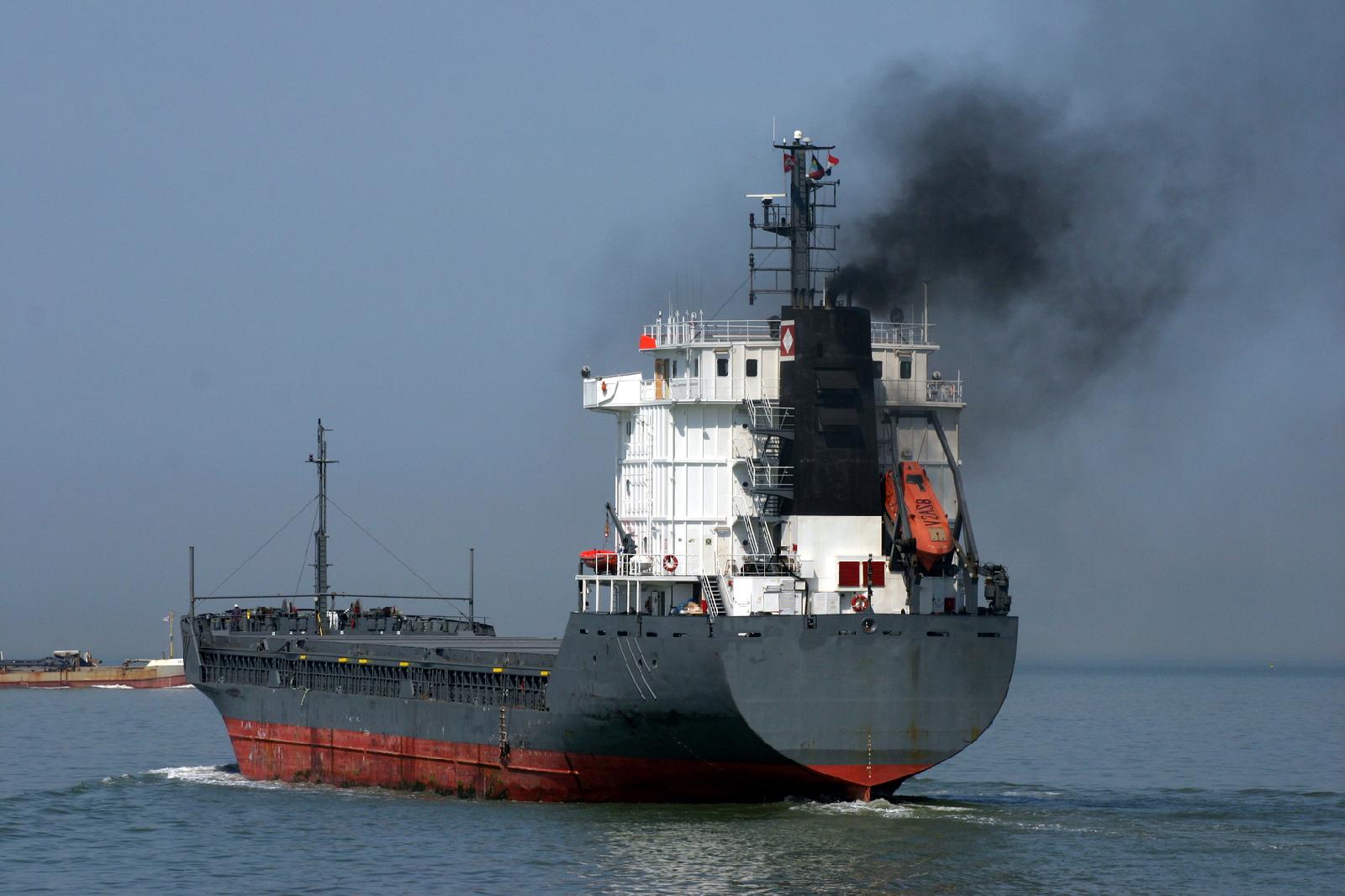
The Tokyo and Paris Memoranda of Understanding (MoUs) on port State control (PSC) have been working collaboratively to ensure that vessel owners and operators are aware that under the Authorities belonging to these MoUs, inspections will be undertaken to ensure compliance with the new sulphur limit requirements on marine fuel oil, from 1 January 2020.
These new requirements prohibit the use of non-compliant fuel from 1 January 2020 and the carriage of non-compliant fuel, for use on the ship, from 1 March 2020, unless the ship is fitted with an Exhaust Gas Cleaning System (EGCS).
To raise awareness in advance of the implementation of the new requirements, both the Paris MOU and the Tokyo MOU member Authorities have been issuing letters to vessels since the beginning of 2019, to remind them of the new requirements and the date of application.
During this information campaign the awareness among ships’ crew proved to be high, especially with respect to the requirements entering into force on 1 January 2020. Emphasis is therefore placed on the requirements entering into force on 1 March 2020 prohibiting the carriage of non-compliant fuel, for use on ships not equipped with EGCSs.
As noted in these letters, there are three options for ship owners and operators to comply:
- Use compliant fuel oil with sulphur content not more than 0.50% m/m;
- Use an alternative fuel, such as LNG, with a sulphur content of 0.50 % m/m or less; or
- Fit an alternative means of compliance, such as an EGCS approved under regulation 4 of MARPOL Annex VI.
The consensus at MEPC 73 was that there was no need to request port State control Authorities to adopt a ‘practical and pragmatic’ approach as compliance was expected, therefore both Memoranda have agreed that the requirements in relation to the implementation of the 0.50% m/m sulphur cap will be applied without exception. This includes the carriage ban on non-compliant fuel from 1 March 2020.
From 1 March 2020 non-compliant fuel can only be carried on board, for use on the ship, where the vessel is fitted with an EGCS. In instances where compliant fuel cannot be obtained a Fuel Oil Non-Availability Report (FONAR) must be submitted to the flag State and the Competent Authority in the next port of call.
Launch of a joint Concentrated Inspection Campaign on Emergency Systems and Procedures
The Maritime Authorities of the Tokyo and the Paris Memoranda of Understanding (MoU) on Port State Control will launch a joint Concentrated Inspection Campaign (CIC) on Emergency Systems and Procedures.
The main objectives of this CIC are to ensure that:
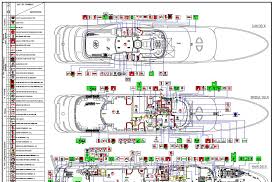
2018 Paris MoU Annual report "Consistent Compliance"
Online version: 2018 annual ParisMoU
Downloadable version and Press release you will find below this article.
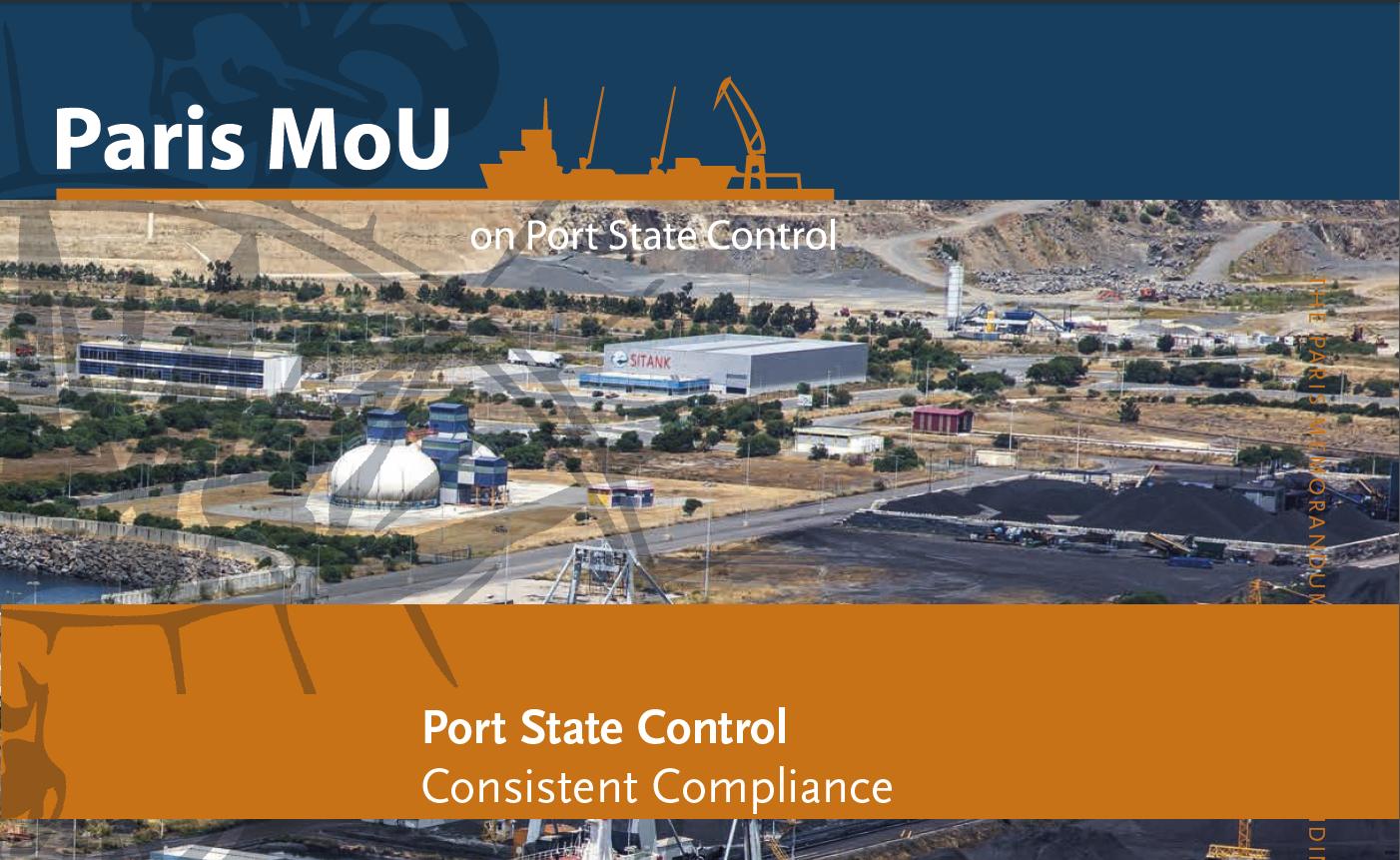
Executive SUMMARY
In 2018 there were 24 Refusal of Access Orders (ban) issued. This shows a decrease from 32 in 2017. Refusal of access (banning) has been used 77 times since 2016. The detention percentage has decreased to 3.15% (from 3.87%). Consequently, the number of detainable deficiencies has decreased as well to 3,171 (from 3,883 in 2017). The number of inspections carried out was 17,952; this is slightly higher than in 2017 (17,923). Over the past three years 73 ships have been banned for multiple detentions and four ships were banned “failing to call at an indicated repair yard”. Ten ships of these ships were banned for a second time. Over a three year period the flags of Comoros, the United Republic of Tanzania and Togo have recorded the highest number of bannings. Looking at the Paris MoU “White, Grey and Black List” the overall situation regarding the quality of shipping seems to be stabilising. Although some flag States have moved between lists, the total amount of 41 flags on the “White List” is almost similar to that in 2017 (40). The “Grey List” contains 18 flags (20 in 2017); the “Black List” 14 flags (13 in 2017). Recognized Organizations (ROs) are authorised by flag States to carry out statutory surveys on their behalf. For this reason, it is important to monitor their performance, which is why a performance list for ROs is presented in the Annual Report as well. Out of 566 detentions recorded in 2018, 97 (17%) were considered RO related (14.3% in 2017). The number of inspections is stabilising. The detention percentage in 2018 (3.15%) however shows a significant decrease compared to 2016 (3.85%) and 2017 (3.87%). The level of detainable deficiencies has decreased as well from 3,883 in 2017 to 3,171 this year. Members with the largest number of inspections, namely Spain, the United Kingdom, Italy, the Russian Federation, the Netherlands, Germany and France, jointly accounted for 52% of the total number of inspections this year. With 1,098 inspections and 145 detentions the ships flying a “Black-listed flag” had a detention rate of 13.2%, which is substantially less than the 16.9% in 2017. For ships flying a “Grey-listed flag” the detention rate was 6.4%, which is lower than the 7.4% in 2017. Ships flying a “White-listed flag” had a detention rate of 2.3% which is slightly less than in 2017 (2.5%) and 2016 (2.6%). The five most frequently recorded deficiencies in 2018 were “ISM” (4.73%, 1,911), “fire doors/openings in fireresisting divisions” (2.62%, 1,057), “nautical publications” (2.01%, 811), “charts” (1.72%, 693) and “oil record book” (1.64%, 661). The first four are consistent with 2016. Relatively the total number of the top five has slightly increased from 12.6% in 2017 to 12.7% this year.
Dynamic version of the ParisMoU Annual 2018
2018 Performance lists Paris MoU
At its 52nd meeting last month, the Paris MoU Committee approved the 2018 inspection results and adopted new performance lists for flags and Recognized Organizations (ROs). These lists will take effect from 1 July 2019.
The “White, Grey and Black (WGB) List” presents the full spectrum, from quality flags to flags with a poor performance that are considered high or very high risk. The list is based on the total number of inspections and detentions over a 3-year rolling period for flags with at least 30 inspections in that period.
Regarding the “White, Grey and Black list” for 2018, a total number of 73 flags are listed: 41 on the “White List”, 18 on the “Grey List” and 14 on the “Black List”. In 2017 the total number of flag States on the list was also 73 of which 40 on the White List, 20 on the Grey List and 13 on the Black List.
The White List represents quality flags with a consistently low detention record. Compared to 2017, the number of flags on the White List has increased with one. Lithuania and the Russian Federation have entered the White list while Saudi Arabia has dropped to the Grey List.
Flags with an average performance are shown on the Grey List. Their appearance on this list may serve as an incentive to improve and move to the White List. At the same time flags at the lower end of the Grey List should be careful not to neglect control over their ships and risk ending up on the Black List next year.
On this year’s Grey List a total number of 18 flags is recorded. Last year the Grey List recorded 20 flags. New on the Grey List is the already mentioned flag of Saudi Arabia. Vanuatu has entered the Grey List from the Black List. Bulgaria has become a non-listed flag.
The flag of Albania has dropped to the Black List. New on the performance list and to the Black List is Mongolia.
For several years the Committee has closely monitored the performance of ROs acting on behalf of flags. To calculate the performance of the Recognized Organizations, the same formula to calculate the excess factor of the flags is used. A minimum number of 60 inspections per RO is needed before the performance is taken into account for the list. In 2018 32 ROs were recorded on the performance list.
Compared with last year’s performance level, the level of RO performance is similar, with 4 ROs in the very low performing parts.
Details of the responsibility of Recognized Organizations for detainable deficiencies have been published since 1999. When one or more detainable deficiencies are attributed to a Recognized Organization in accordance with the Paris MoU criteria, it is recorded “RO responsible” and the RO is informed. Out of 566 detentions recorded in 2018, a number of 97 (17%) were considered RO related (14.3% in 2017).
As from 1 July 2019 the performance lists will be used for calculating the Ship Risk Profile. More information can be found in the 2018 Annual Report, which will be published in July 2019.
The Paris MoU holds 52nd Committee Meeting in St. Petersburg
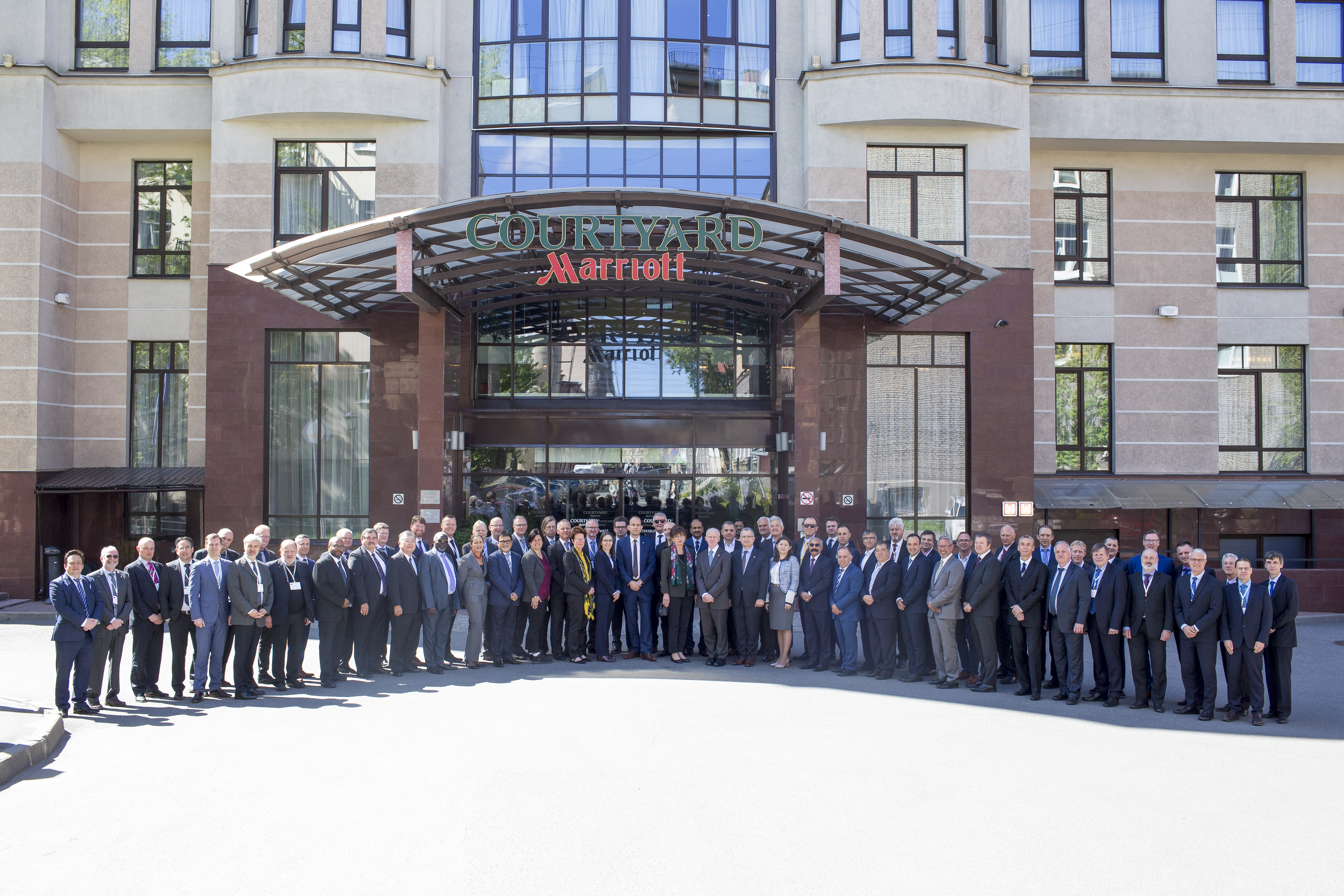
The Paris Memorandum of Understanding on Port State Control (Paris MoU) held its 52nd Committee meeting in St. Petersburg, the Russian Federation, from 13-17 May 2019, chaired by Mr. Brian Hogan. The meeting was opened by Mr. Yuri Kostin, Director of Department on State Policy on Maritime and River Transport, Ministry of Transport of the Russian Federation.
The Committee reviewed the work of the Paris MoU of the last year, also taking into account the declaration of the 3rd Joint Ministerial Conference, and took decisions for the period ahead.
The Committee considered the report of the Concentrated Inspection Campaign (CIC) on MARPOL Annex VI. The CIC was carried out from September to November 2018. The general conclusion was that the overall compliance with MARPOL Annex VI was satisfactory. The Committee reminds the industry to ensure that a fuel change-over procedure is provided on board and used as required and that bunker delivery notes are kept on board for a minimum of three years.
The Committee approved the questionnaire for the CIC on Emergency Systems and Procedures to be carried out jointly with the Tokyo Memorandum of Understanding on port state control. The CIC aims at ensuring compliance with the requirements for the preparation of emergency equipment and the crew’s ability to respond to emergency situations. The CIC will be carried out from September to November 2019 and the questionnaire will be published in August.
The Committee discussed the issue of access to PSC data by third parties and agreed this would require further consideration at the next Committee meeting. The Committee reconfirmed that inspection data on individual ships continues to be available on the Paris MoU website.
The Committee adopted the 2018 Annual Report, including the White, Grey and Black List and the performance list of recognised organizations. The lists will be published in early June and used for targeting purposes from 1 July 2019. The Annual Report will be published in July this year. The Committee took note of a considerable decrease in the number of ships which have been detained in the Paris MoU region, reducing the detention percentage from 3.87% in 2017 to 3.15% in 2018.
Decisions were taken on a new methodology to calculate flag state performance based on the average detention rate and recognised organization (RO) fleet performance based on detainable deficiencies. When the new methodology is implemented, performance tables will be listed alphabetically and categorized as high, medium and low performance.
The meeting was attended by the members of the Paris MoU, the European Commission, EMSA, Montenegro, observers from the US Coast Guard, Tokyo MoU, Caribbean MoU, Mediterranean MoU, Indian Ocean MoU, Black Sea MoU and Riyadh MoU.
On behalf of the Maritime Authorities, Mr. Hogan concluded the meeting by remarking that significant progress has been made on port state control issues during this meeting. He thanked all member Authorities, the European Commission, EMSA, the Paris MoU Secretariat and the observers for their contribution. In particular Mr. Hogan thanked the Ministry of Transport of the Russian Federation, Federal Agency on Maritime and River Transport and the Administration of the Baltic sea ports for the excellent arrangements they made for this Committee meeting in St. Petersburg.
Increased availability to Paris MoU Data

The Paris Memorandum of Understanding on Port State Control (Paris MoU) starts sharing its inspection data with the public in bulk form.
To this end, the Paris MoU website (www.parismou.org) has been expanded with an additional, dedicated page where the inspection results can be downloaded. Both manual and automated. After receiving an account for the web page, the inspection results are available to be accessed.
The Paris MoU has made its inspection data publicly available through the website for many years now. This inspection data was available on an individual ship basis. Due to the increasing importance of the availability of reliable data for parties in the maritime industry and the demand from third parties to be able to analyse such data, the Paris MoU has decided to develop the possibility to make data available in bulk form (XML format). This is part of the work of the Paris MoU to strengthen its role in the chain of responsibility within the industry in order to improve maritime safety, pollution prevention and seafarer working and living conditions.
Any interested party can request an account by filling in the Paris Mou Data Request Application Form (see below) to download the data that will be available to share.
